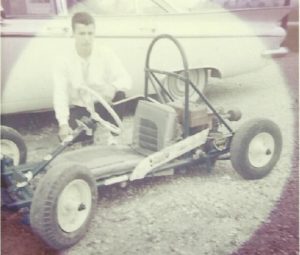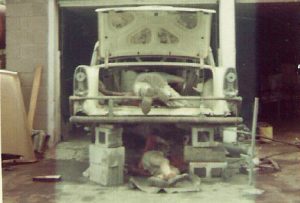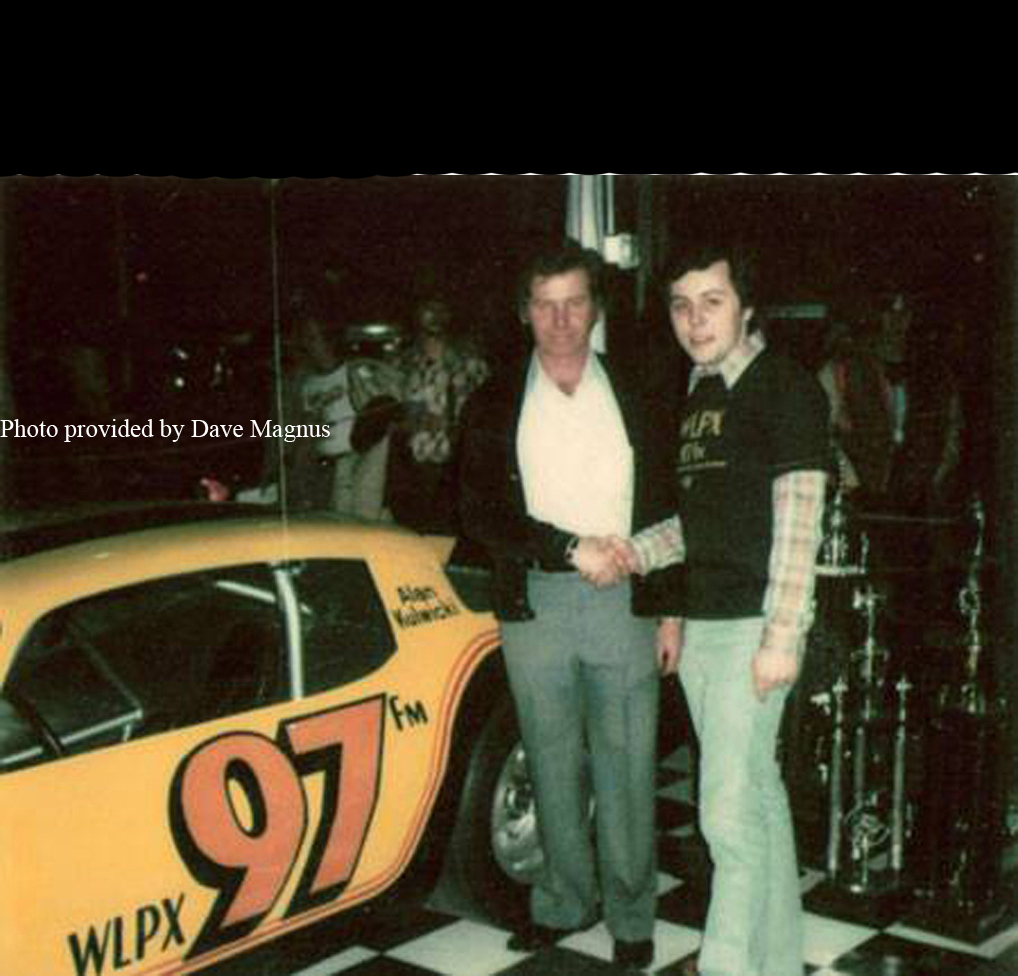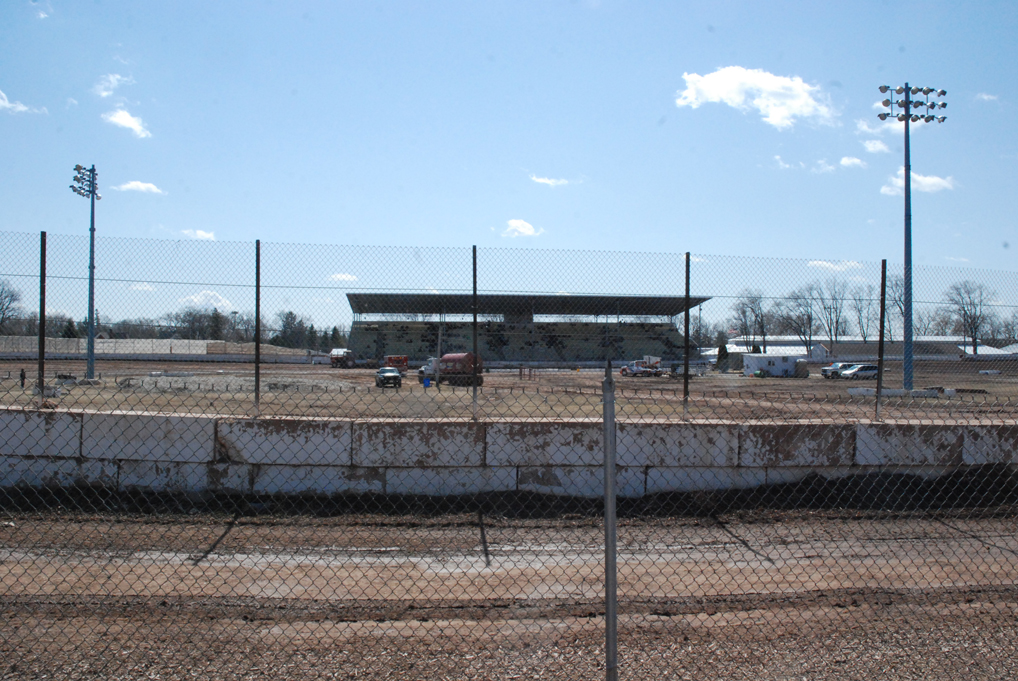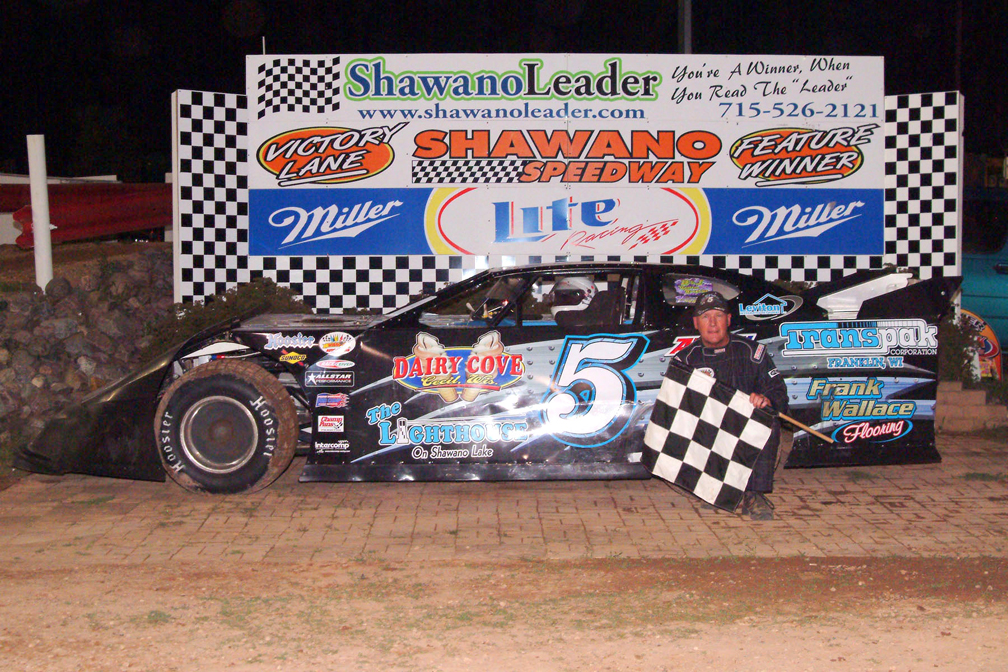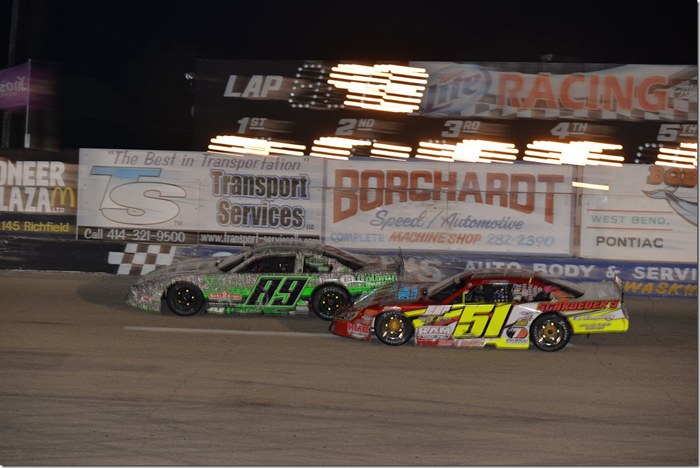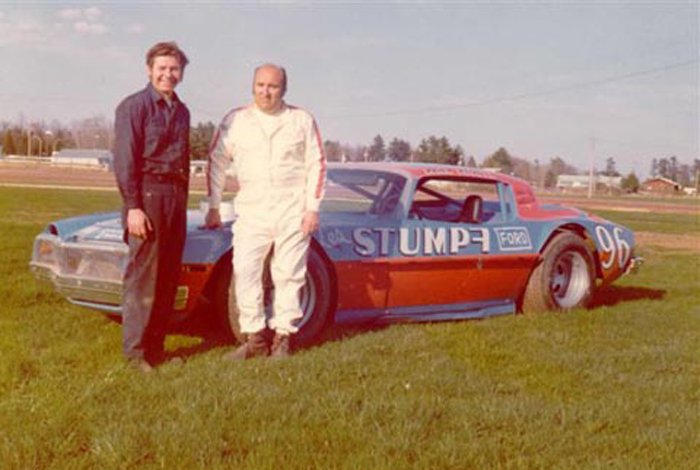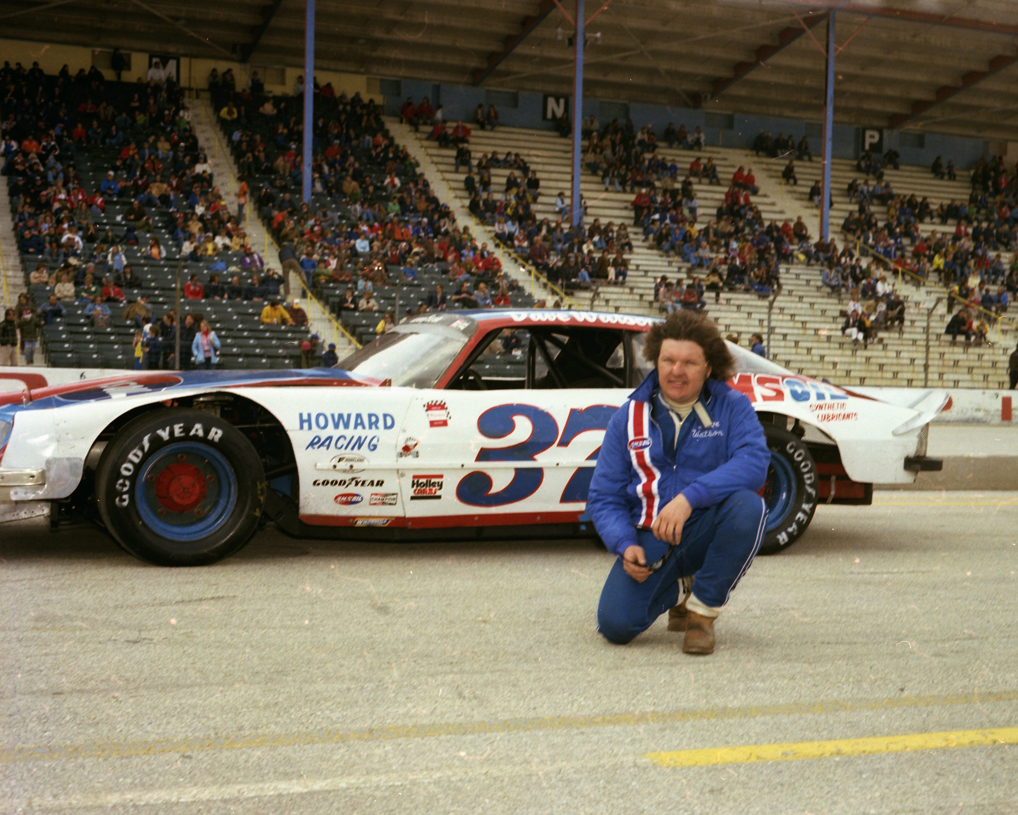Bob Wondra bucked the odds to be involved in local racing
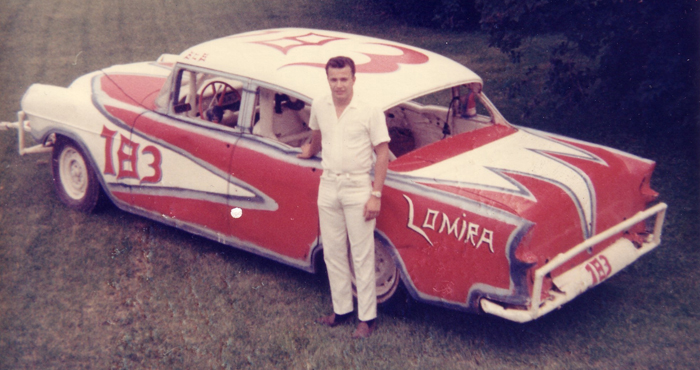
By Dave Magnus
Contributing Writer
Bob Wondra’s interest in racing developed in 1958 at the age of 11 when his family moved to a farm outside of Lomira.
At that time there were four farms that did all their harvesting together, one being the farm of Ron Luedtke. Around this same time the Lomira Racing team was formed, consisting of cars built by local resident Sy Fell and driven by Luedtke and another Lomira native, Ron Enderle. The team’s home track was a dirt bowl at Slinger which raced on Sunday nights. A neighbor of the Wondra’s attended those races at Slinger and would take young Wondra along so he could watch the races too. Wondra was the oldest child of the family and had six sisters.
Being exposed to life on a farm, and watching his father, Wondra learned how to weld, how to use cutting torches and also became somewhat mechanically inclined. In 1964 he built a go-kart, using barn stanchions for the frame and spare parts that his father bought at farm auctions and stored in a big bus at the farm, for any repairs that he, or the neighbors, might need. When Wondra reached high school age he bought a 1956 Chevy and had the motor rebuilt with the intention of racing it when he turned 21, which was the minimum legal age for racing at the time.
Wondra graduated from high school in 1966 and a short time later he was drafted into the U.S. Army. He gave his car to his oldest sister Eunice to use until he got back from serving his country. In 1967 he went to Vietnam as an infantry man and seven months later on March 4, 1968 he was hit by a B40 rocket that took off most of his left leg, leaving him with about six inches of his original leg.
In a letter Wondra wrote to his parents on March 15, 1968 he said “I’m on my wheels a lot, always running around somewhere in this chair. They wouldn’t give me crutches because of the wound having to heal up, I saw the stump, it is healing great, should be able to go without a bandage in a week or so. They really did a good job on it. They tell me it will take 8 to 16 months to heal and use the new leg. I told them they were crazy and I would be walking like new by September! Mark my words on that! No way I’ll be hopping around when I get home! Even the guys around here said I’ll probably be doing the polka the first night home, and I said you better believe it. I’ll dance the polka, I’ll drive the go-kart and race stock cars before the year is over with. I feel real good, can’t wait to get sent to the United States so I can see all of you, but they said it may be another week.”
Wondra did rehab in Denver, Colorado while learning to walk on a prosthesis that usually takes about six months of rehabilitation. He was bound and determined to get home and start his racing career, something that heightened his personal effort to get better physically and fight the mental anguish of being wounded and crippled at the age of 21. The first Sunday home from Denver, he went to the races at Slinger as a spectator. After the races Ron Luedtke, who was driving for Glenn Haddy of Mayville at the time, introduced him to a girl named Marie, who Luedtke had brought to watch him race. Bob and Marie eventually started dating.
At the end of June 1968 Wondra converted his 1956 Chevy into his first race car. He did all the work, including the roll cage, on his own and he finished out 1968 driving his race car, which he vowed to do. This was just four months or so after being wounded. He raced four years in the Sportsman division from 1968 through 1972, under the ProStar sanctioning group.
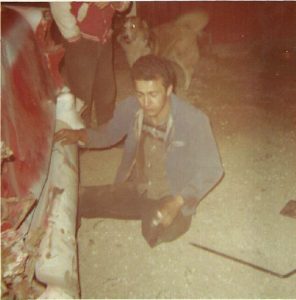
Bob Wondra works on his race car in June 1968 shortly after his return home from Vietnam and rehab. He was determined to get his first race car done.
Submitted photo
Bob and Marie were married shortly thereafter and have been for 47 years. She became his partner in life and his race car ownership partner too.
In 1973 Bob bought his first Modified stock car with partner Luedtke from Wally Jors of Fond Du Lac. Luedtke would be the driver of the car. At that time they raced four to five nights a week on the dirt tracks at Hales Corners, Slinger, Beaver Dam and State Fair Park in West Allis. Whenever Luedtke could not get to the track in time due to farming, Wondra would warm up the car and often times qualify it, if needed. Qualifying determined where you would line up for the nights races.
On a number of occasions Wondra raced the car himself when Luedtke was not able to make it at all to the track. The numbers on that car were plastic and snapped on so that Wondra could quickly change the number from Luedtke’s to his own number. Wondra engineered a hand brake in the car using a cable and pulley system attached to the brake pedal and a lever so that he could use one hand to brake and the other hand to steer. At that time all cars already used hand clutches. Needless to say Wondra was very busy in the cockpit of a race car and overcame many challenges to do what he loved to do. His destiny in the sport however, was to become a car owner and mechanic, rather than driver.
In the winter months Wondra helped his now brother-in-law Glenn, whose wife Carol was Marie’s sister, building or rebuilding his Modified stock cars. That is how he learned about setting up a race car and making adjustments at the track to make the car go faster. Wondra credits Glenn with being a great help to him getting started racing the Modified cars, with the Milwaukee Stock Car Association (MSC).
He and Luedtke raced together from 1973 through 1984. In 1982 Luedtke won the Eastern Wisconsin (EWSC) Modified championship, Wondra’s first as a car owner, racing at Chilton, Francis Creek and Plymouth. He was set to repeat that in 1983 when with seven laps left in the last race of the year the drive line broke on the car and Luedtke coasted into the infield and watched West Bend’s Frankie Heimerl take away any hope of a repeat championship. The highlight of that season came one night at Francis Creek, a paved quarter mile track, when Luedtke scored a “clean sweep” setting fast time, winning his ten lap heat race from the back of the pack and then winning the 25 lap feature also from the back of the 16 car pack.
One of the funniest things that happened throughout the years of racing with Luedtke was one night at Chilton when the oil pump shaft in the engine twisted off during a heat race. To fix it they tipped the car on its side and removed the oil pan and changed the oil pump before the main feature event. The word had quickly spread throughout the stands that Luedtke had rolled the car over making his way into the pit area, which resulted in some pretty good laughs among the team.
In 1985 Rich Wondra, Bob’s first cousin and like an older brother to Bob all his life, took over the driving duties of the car and won the first ever “Etchie Biertzer Memorial” race held at Plymouth. Biertzer was a many time Modified racing champion from West Bend who raced into his sixties, known to his many fans as “The Flying Grandpa.” They consider that victory as one of their greatest honors achieved in racing because Biertzer was such a revered champion in the sport of local short track racing and an exceptional person loved by all.
Luedtke came out of retirement in 1986 and drove again for Wondra until he retired for good in 1988. Gene Erdmann drove for Wondra for one season in 1989 and in 1990 Bob’s son Troy turned 18 and started driving the family Modified. Troy was runner-up for “Rookie of the Year” that season and raced the Modifieds until 1999. At that time the Wondra racing team made the move to Sprint Cars with 360 engines and Troy was “Rookie of the Year” that year with the Midwest Sprint Association (MSA). He won his first feature in 2000 at Beaver Dam and drove Sprint Cars through 2009. That 2009 season at Plymouth proved to be a “Cinderella” season for the Wondra team as on the last night of the year Troy won the A-main feature and with it won the track championship on his last night of racing and Wondra’s last night as a car owner.
After 42 years all the racing equipment was sold so Bob and Marie could enjoy spending more time with their eight grandchildren and their families. Bob and Marie raised three children, and their daughters Bobbi and Becky and son Troy all spent their summers at the race tracks until they were old enough to play sports. All were a big help working on the cars during their young lives. Bob and Marie could not have done all of this had it not been for the help of their sponsors and all of the family that helped them throughout the years with maintaining the cars at home and at the track.
All of these accomplishments would never have been realized without the heart and determination of a wounded soldier, who lay in a bed in a foreign land, without his left leg, thinking only of returning home and doing what he knew he loved to do. He became a lifelong racer at a young age, and remains so today, as one of the greatest stories of hard work and desire in short track racing history.
The late NASCAR champion Dale Earnhardt was known as “The Terminator” and Bob Wondra should be forever known as “The Determinator” for his achievements in racing.
Wondra is a nominee for the Southeastern Wisconsin Short Track Hall of Fame and a sure bet to dance that polka sometime soon.
(This article appeared in the June 2016 issue of Full Throttle magazine.)

